- April 25, 2024
-
-
Loading

Loading
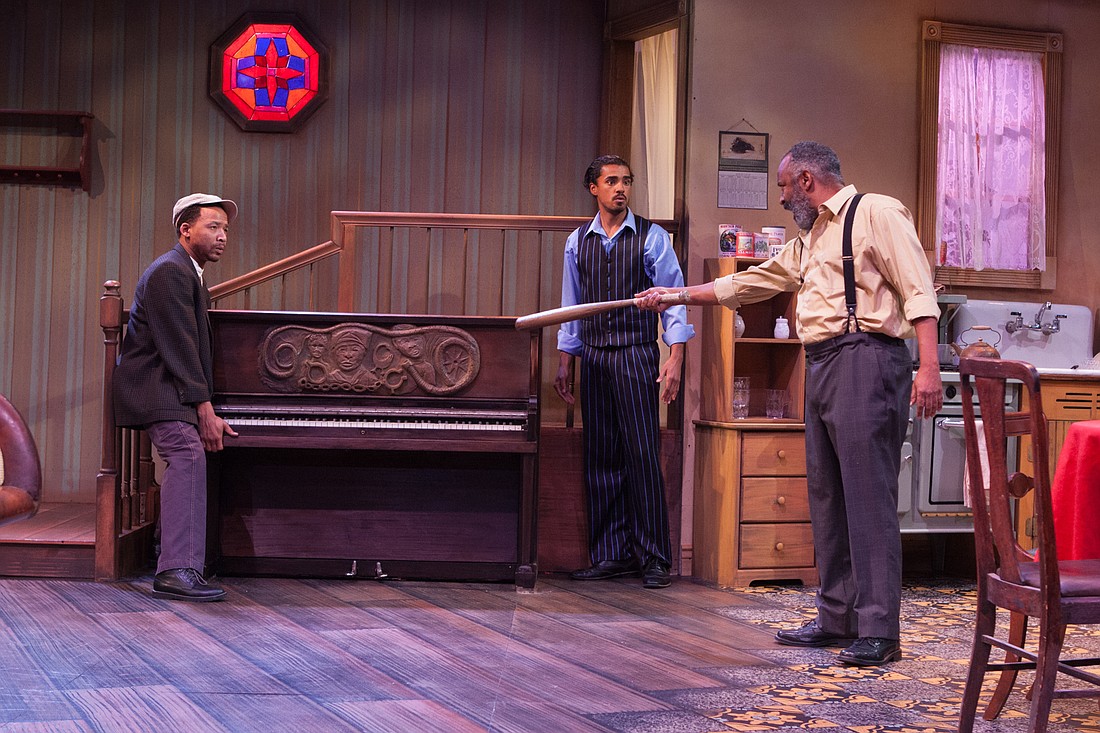
August Wilson’s “The Piano Lesson” is the latest Westcoast Black Theatre Troupe production. Wilson’s play strikes many notes. It’s a tale of blood, sweat and tears; a magical-realist ghost story; a fable of triumph over slavery’s bitter inheritance; and, of course, the story of a piano. Let’s start there.
Once upon a time in the Old South, the slave-owning Robert Sutter traded two members of a black family for a piano — a mother and her son. (He kept the father, because of his valuable carpentry skills.) But Sutter’s wife missed her two lost slaves. To keep her happy, Sutter cruelly ordered his carpenter to carve the faces of his lost wife and child on the piano. He did — along with the entire history of his family. In 1911, the carpenter’s grandchild stole the piano. He paid for his life, along with five black hobos in the wrong boxcar at the wrong time. Despite murderous white reprisals, the black family hid the piano and held onto it. Then passed it down to the next generation.
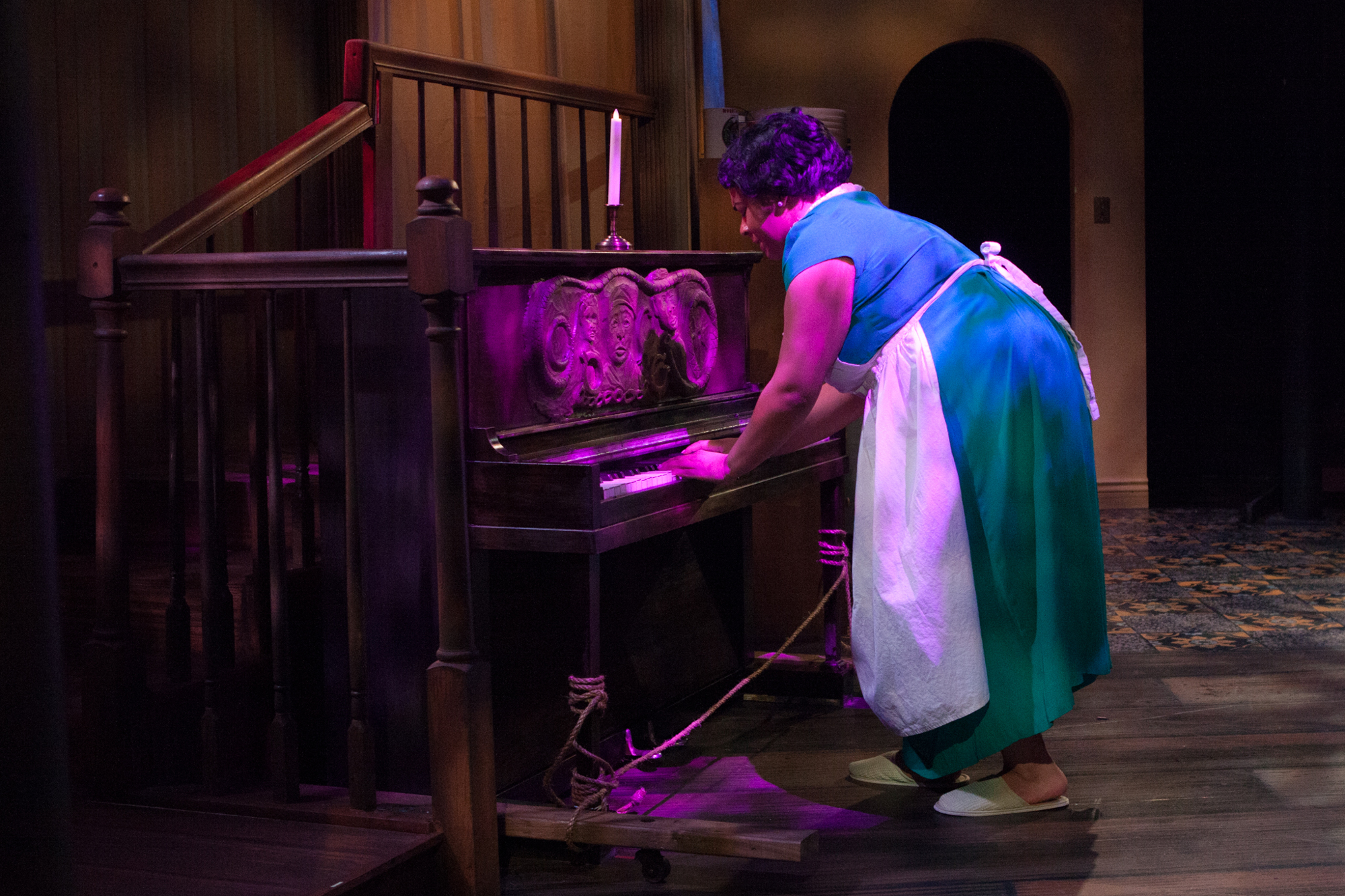
In 1936, the piano belongs to Berniece (Noelle Strong). At least half of it does. The other half belongs to her brother, Boy Willie (Earley Dean). Early one morning, he shows up at her house in Pittsburgh with a truckload of watermelons. Officially, he plans to sell them with his friend, Lymon (Michael Mendez), a laidback ladies’ man. Unofficially, Boy Willie also plans to sell the piano and give Berniece half the money. He intends to use his share to buy the land his ancestors once worked as slaves. But Boy Willie knows his sister will fight to keep the piano. Her great-grandfather carved it; her father died stealing it; her mother spent her life playing it, mixing her blood, sweat and tears with her ancestors’ in the process. Willie Boy also knows that Berniece refuses to play the damn thing; her music might rouse ghosts and the sadness they bring. Seeing as how she won’t put the piano to good use, Boy Willie figures he might as well sell it. (You can’t buy land with memories.) But Berniece figures out his plan, and sparks fly.
A powerful story. But it’s only one motif among many. Wilson’s play is a symphony of big and small moments; realism and magic; loud enthusiasm and subtle revelation. Director Chuck Smith successfully captures the myriad ups and downs of Wilson’s text. It’s a play. But it could easily be a mini-series.
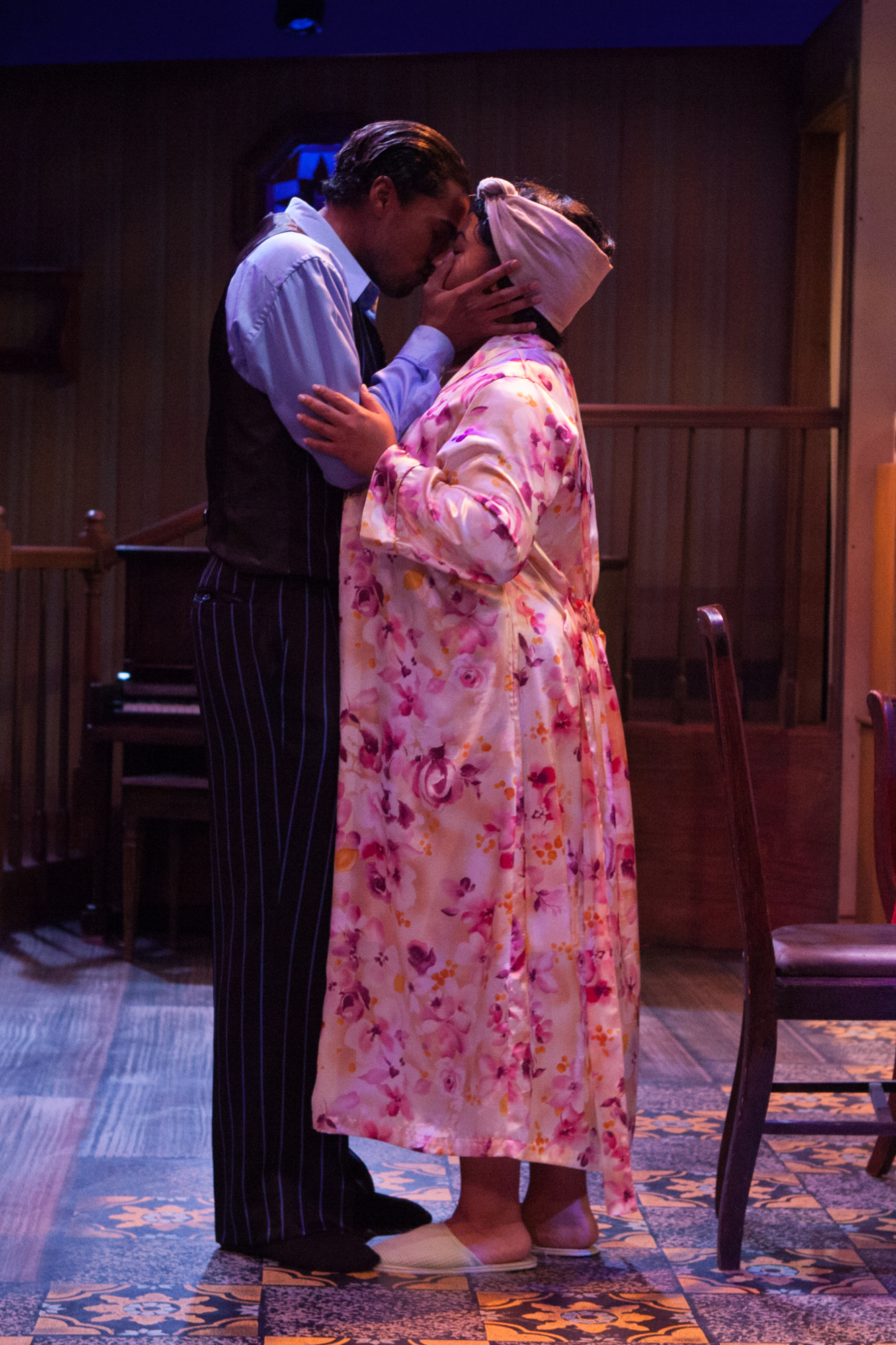
Dean’s Boy Willie is loud and larger-than-life — a sympathetic soul whose ambition stands up to racism’s insults and assaults. Noelle Strong is compelling as the multilayered Berniece, a tough, gentle widow who’s put her heart in cold storage. Kenny Dozier plays Avery, a charismatic preacher who wants to thaw her heart out. Dozier beautifully captures his character’s revival rhythms at the play’s climax. Patric Robinson’s Wining Boy lives up to his name. He’s a hard-drinking piano player who never hit the big time. A born entertainer who occasionally falls into lush self-pity, but has his own divine spark. Doaker (Henri Watkins), Berniece’s uncle, is a soft-spoken pillar of sanity. He keeps his cool—but he won’t be pushed past a certain point. Mendez’ Lymon is an easygoing guy who occasionally breaks the law—not hard for an African-American living in old-time Mississippi. Lymon’s sick of the Jim Crow system and plans to move up North. Mendez makes you feel a young man’s itch for something better. Emerald Rose Sullivan has a comic cameo as Grace, Boy Willie’s interrupted love interest. Jireh Pierre is winsome as Maretha, Berniece’s daughter. She’s a cute, budding piano player—who doesn’t fear the carved faces of her ancestors. “The Piano Player” is fought on the battleground of memory. At some level, it’s a struggle for Maretha’s soul. She’s the future, after all.
Wilson’s has a keen ear for dialog and X-ray insight into character; the action on stage feels like real life. With all the messy, rambling epicycles, asides and subplots that real life brings.
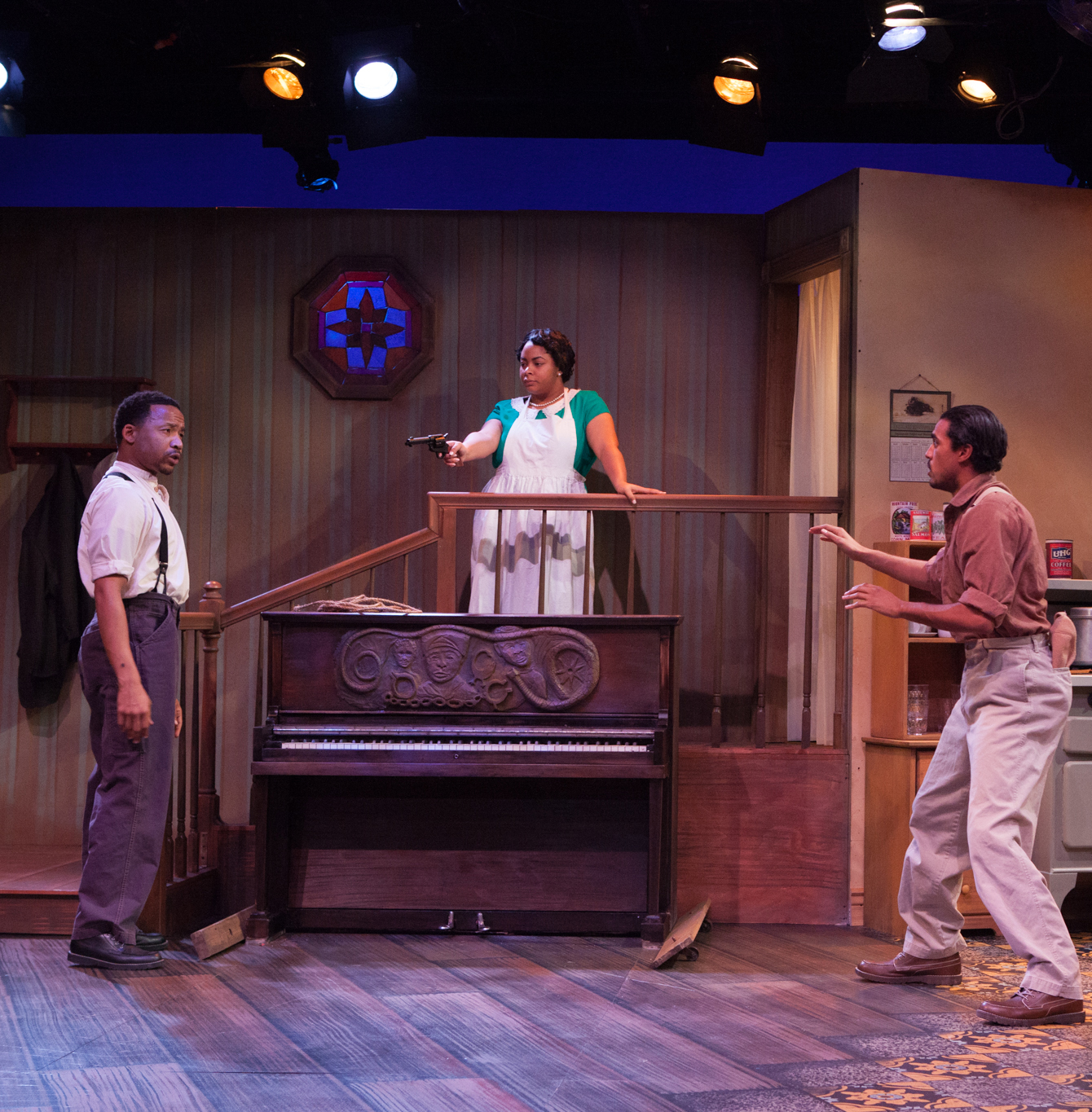
If the playwright had written a simple piano parable, he could’ve easily cut his three-hour play in half. But Wilson also looks at life’s small moments. A call-and-response blues song. The legend of a magical silk suit. A failed romantic interlude. A preacher’s ambition. A blues musician’s bitter end. All those quotidian details make “The Piano Lesson” as intricately carved as the faces on the titular piano. Which Wilson returns to in the end …
If spoilers strike you as sour notes, this is a good place to stop.
Willie Boy finally decides to sell the piano, whether Berniece likes it or not. He tries to move it with Lymon. On his third try, he disturbs an unquiet spirit. The ghost of Sutter. The Ghost of Slavery Past.
It comes back with vengeance. A violent, tangible presence.
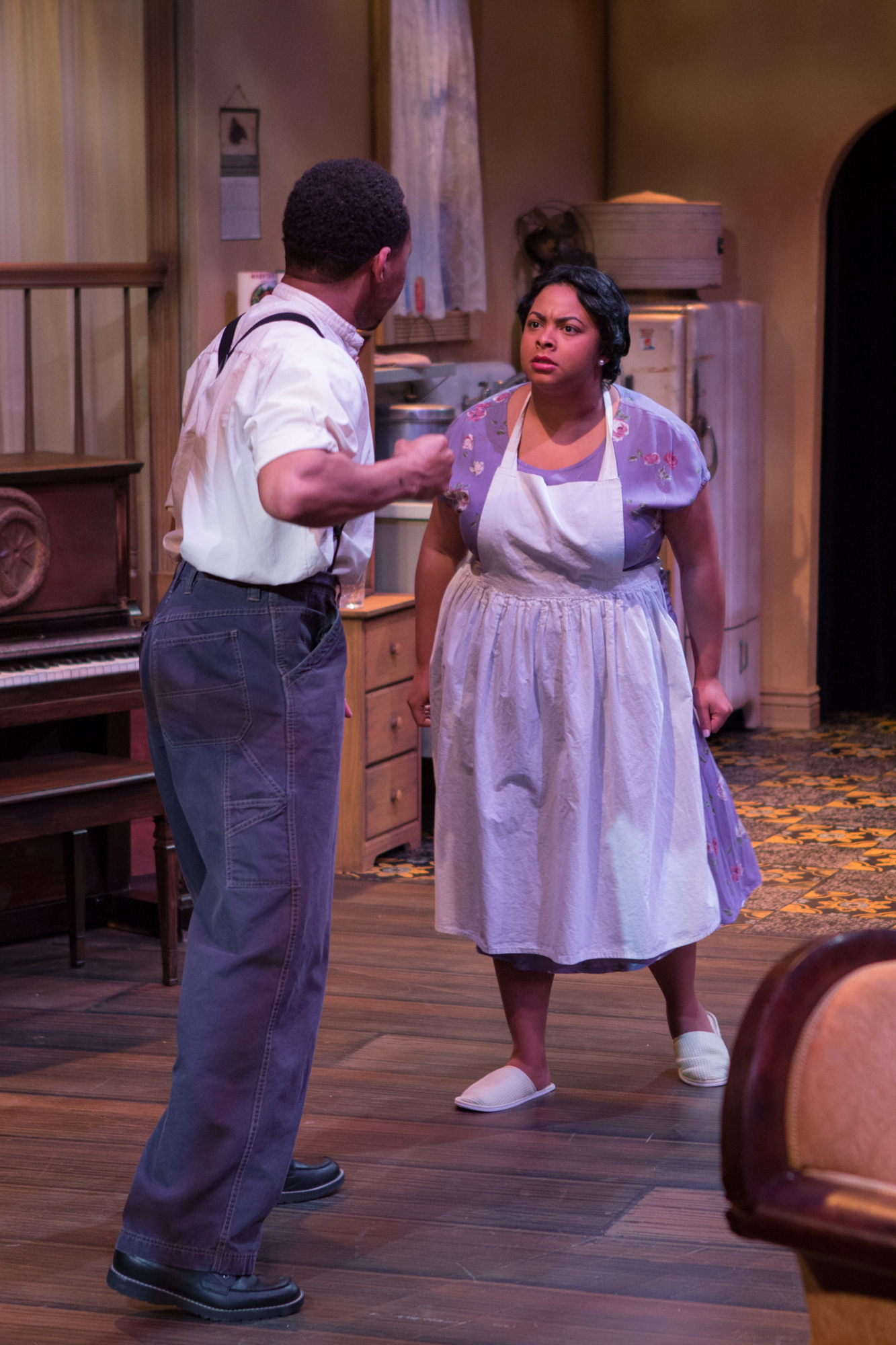
Reverend Avery fights the ghost off with a Biblical exorcism; Willie Boy wrestles it on the staircase; Berniece finally drives it away by playing the piano.
It’s a fine metaphor for the power of memory. To exorcise the ghost of slavery, summon the ghosts of slaves. Embrace your family’s painful past; embrace your blood; embrace who you are. A powerful truth. But not merely metaphorical.
In the world of this play, ghosts are real. They’re presented without winking, cleverness, equivocation or evasion. Wilson may be hinting that ghosts are equally real in our world. If not, the bloody history they symbolize is as real as it gets. Either way …
It’s best to keep the music of memory playing.